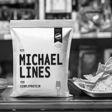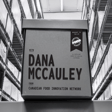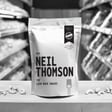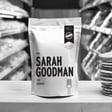
Mitchell Scott | CULT Food Science
Thanks for listening to Aisle 42, in this episode we chat with Mitchell Scott, CEO of Cult Food Science, to explore the cutting edge of cultivated and lab-grown foods.
We dive into the promise and challenges of cellular agriculture, including cultivated meats, seafood, and innovative uses of mushroom-based proteins.
Mitchell explains the science behind bioreactors, the regulatory and market hurdles, and the growing demand for ethical, sustainable protein alternatives.
Throughout the conversation, Mitchell shares his passion for building a future of food that’s delicious, safe, and environmentally sustainable.
To learn more go to https://www.cultfoodscience.com/ and https://www.thebetterbutchers.com/.
To learn more about how we scale food and beverage companies go to: https://www.ethicalfoodgroup.com/
Here's a summary of this interview:
Mitchell is excited about the potential of cultivated and lab-grown meat to revolutionize the food system and reduce reliance on factory farming.
Cellular agriculture involves taking animal cells and growing them in bioreactors to create real meat, milk, or even chocolate without harming animals.
Cult Food Science has invested in 19 portfolio companies, giving investors access to early-stage opportunities in cultivated foods.
The regulatory landscape varies globally: Singapore leads with early approvals, while Canada’s process is more complex and slower.
Mitchell’s mushroom-based company, The Better Butchers, launched a mushroom-pea protein blend that’s in high demand.
Cultivated fat is seen as a key piece to improving the taste and texture of plant-based foods—prototypes are already in the works.
Mitchell sees Europe, Israel, and Singapore as major hubs for cultivated protein innovation.
The conversation also touches on the future of cultivated seafood and the significant role of food safety in lab-grown products.
Mitchell believes the best way to shift perceptions is through taste: delicious products that surprise and delight consumers.
Plant-based and cultivated foods are here to stay, driven by consumer demand for more ethical, sustainable protein options.



















